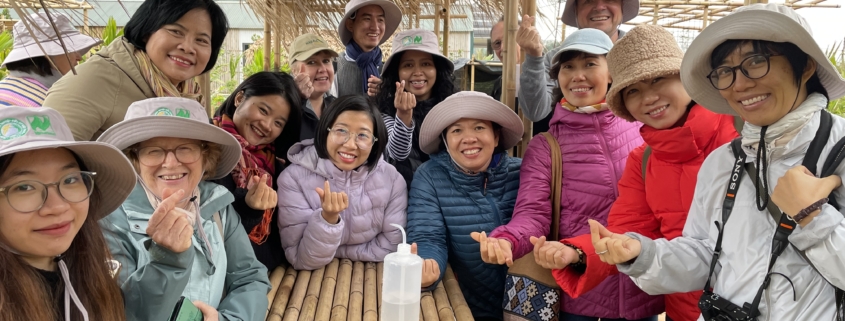Mekong Organics Invites Regeneration International to Promote Regenerative Organic Development Across Vietnam
In January, our friend and partner Mekong Organics invited Regeneration International to participate and share knowledge on a very successful series of events they brilliantly managed entitled “Strengthening Trade and Investment in Organic Agriculture between Australia and Vietnam”, held from January 15 to 21 in both Ho Chi Minh City and Hanoi, funded by the Australian Ministry of Foreign Affairs and Trade and part of a program to bolster economic cooperation between the two countries.
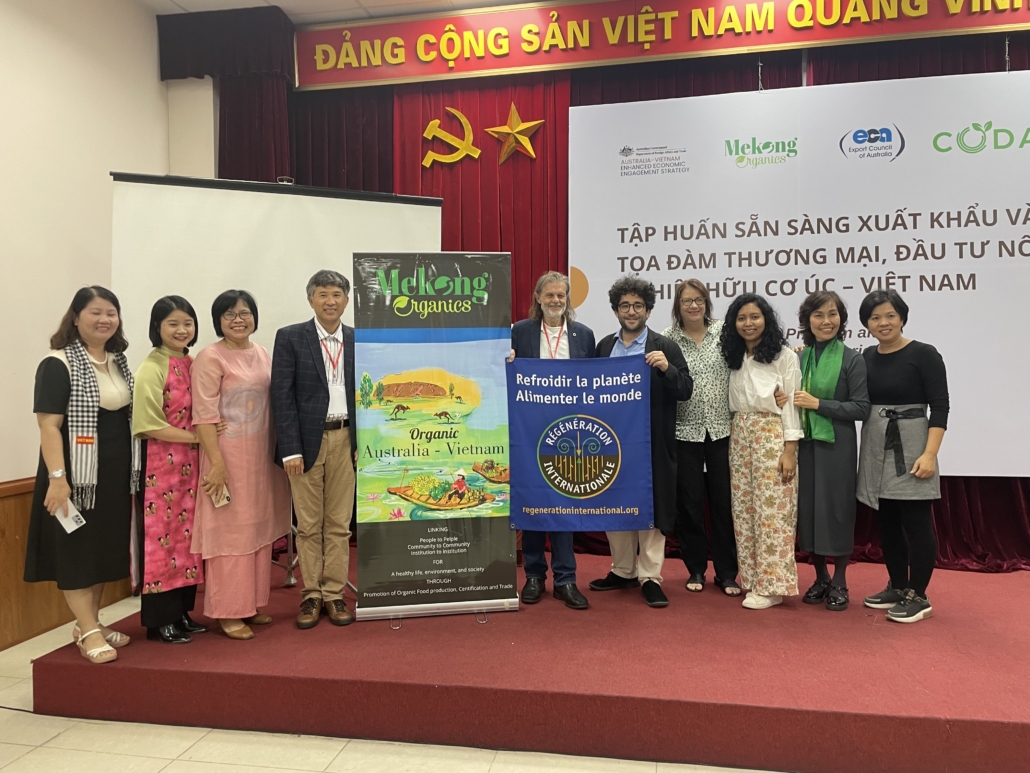
HO CHI MINH CITY
“Strengthening Trade and Investment in Organic Agriculture between Australia and Vietnam” occurred following our trip to Dong Tháp Province in the Mekong Delta. Prominent regenerative farmers from Australia, such as Regeneration International’s Prof. Dr André Leu, Peter Randall, and Alan Broughton, were welcomed by Mekong Organics and the University of Social Sciences and Humanity of Ho Chi Minh (USSH) to give keynote presentations that showcase the triple bottom line benefits of regenerative organic agriculture to an attentive and discerning audience at USSH during a three-day event that included a forum and workshop by Mekong Organics, and an organic food expo of local and regional producers working under OCOP (One Commune One Product of Vietnam) a national cooperative developed to create value chains for small hold farmers.
Further presentations highlighting the importance of organic development as an economic driving force between Vietnam and Australia were given by USSH Rector Dr Ngo Thi Thuong, the Ministry of Agriculture and Rural Development, The Embassy of Australia, The National Association for Sustainable Agriculture Australia (NASAA Organic), and The Export Council of Australia.
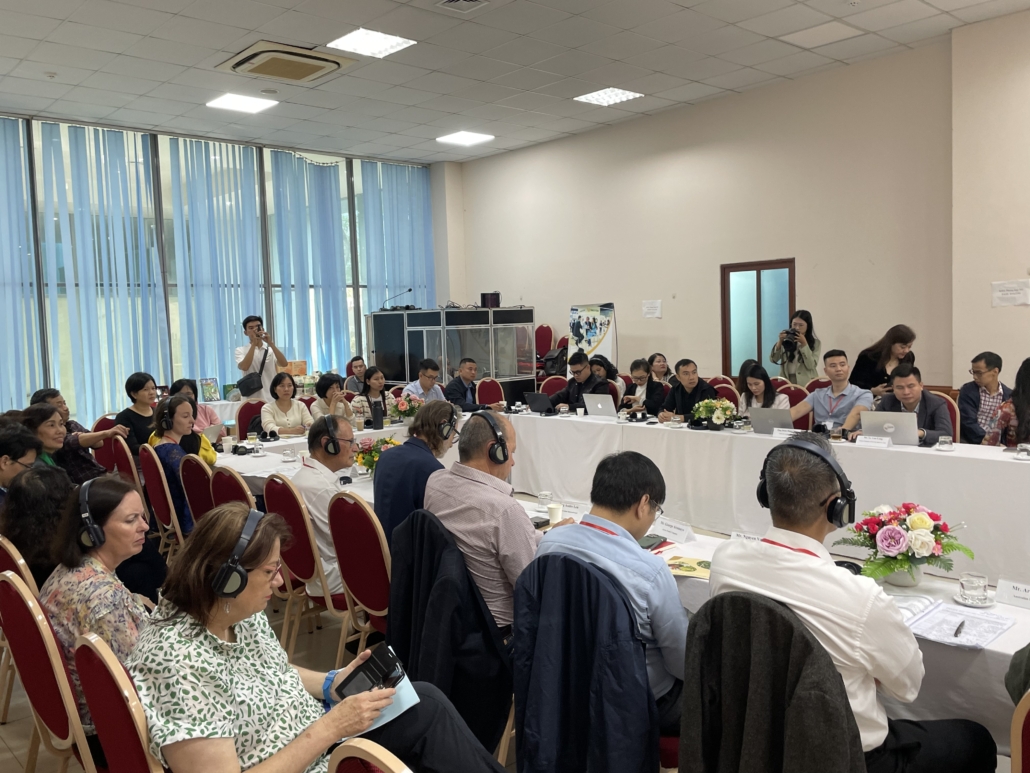
Fifty-seven enterprises registered for the event, and over 150 participants attended the forum and workshop from January 15-18 at USSH in Ho Chi Minh, including rice farmers, livestock managers, southern regional officials from the Vietnamese Ministry of Agriculture and Rural Development, Leaders from the Departments of Agriculture and Rural Development from several provinces, organic food and inputs business executives, and the Vietnamese Organic Agriculture Association the Embassy of Australia in Vietnam, and state media.
Ho Chi Minh:
Hanoi:
During the forum in Ho Chi Minh we met with farmer Joe who produces purple rice in the Mekong Delta who says “The importance of farming organically is above all to save our farmers health – just within my community, those who convert to organic no longer have irritations and daily skin rashes – and their chances of developing cancers decrease. Unfortunately, there are not enough organic farmers in Vietnam, especially as the conventional ones are too scared to make conversion as they think they will lose money and harvests during the transition period”.
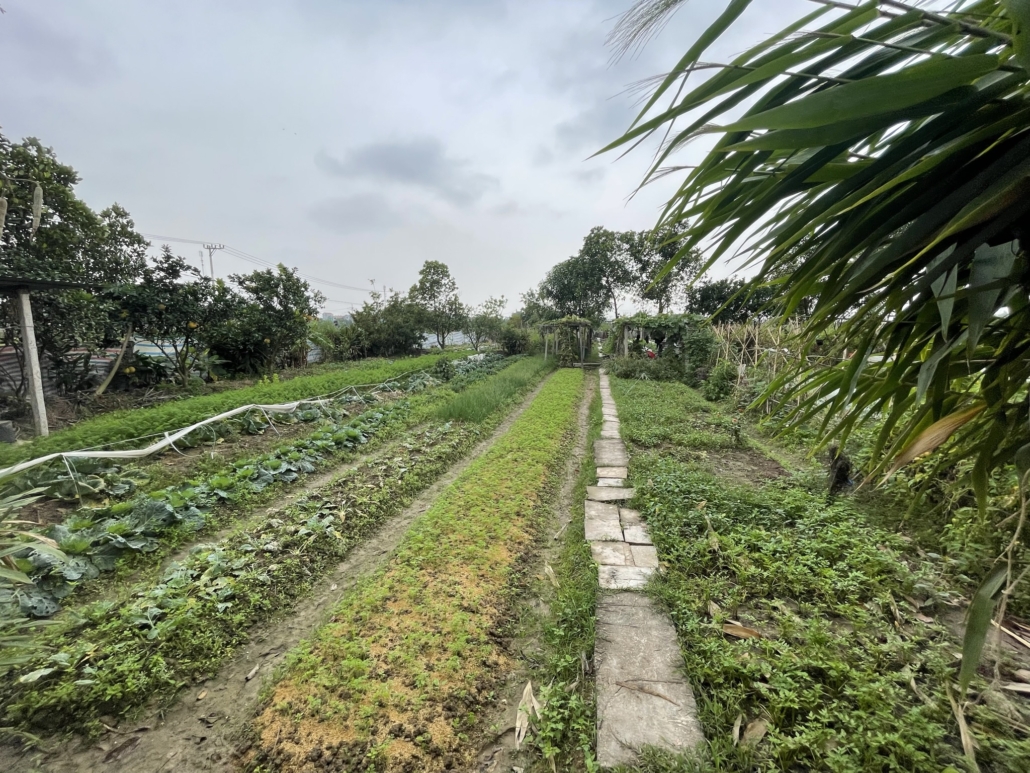
Farmer Joe has found a clever way to combine rice and shrimp farming that benefits rice farmers in the Mekong Delta. The living organisms in the rice fields provide food for the shrimps, while also fertilize and regulate pests in the rice paddy. This practice has been recognized by the Vietnamese government as a climate solution in the Mekong Delta and is receiving increased investments at scale. However, the Mekong River, also known as the Mother Water, is being severely affected by upstream dams, illegal sand mining, aquifer depletion, and rising sea levels. As a result, the freshwater supply to Vietnam’s rice basket, the Mekong Delta, is under threat. These farming practices will be limited in the long run unless more investments are made towards environmental conservation of the Mekong Regions and the restoration of its ecosystems – and this is where our partner, Mekong Organics assists communities according to their wants and needs through research, policy, conservation, and regenerative organic development.
HANOI
The second part of “Strengthening Trade and Investment in Organic Agriculture between Australia and Vietnam” took place from January 18-21 in the Vietnamese capital of Hanoi, with an “Australia – Vietnam Organic Agriculture Trade and Investment forum, followed by organic and PGS certified farm visits organized by the Vietnamese Organic Agriculture Association (VOAA) to the Trang Trai Hüu Organic Darwin Farm which focuses on large and medium scale production of vegetables with state of the art processing facilities to facilitate the export of its products. The second visit brought us to the PGS certified Nhóm Thanh Xuân farm cooperative, a beautiful mosaic of highly productive organic gardens on the outskirts of Hanoi growing and producing fruit, vegetables and flowers symbiotically for the domestic market – two very distinct and unique farming models that create sustained revenue for farmers, promote climate resiliency in food systems, and provide safe and nutritious for consumers in Vietnam and abroad.
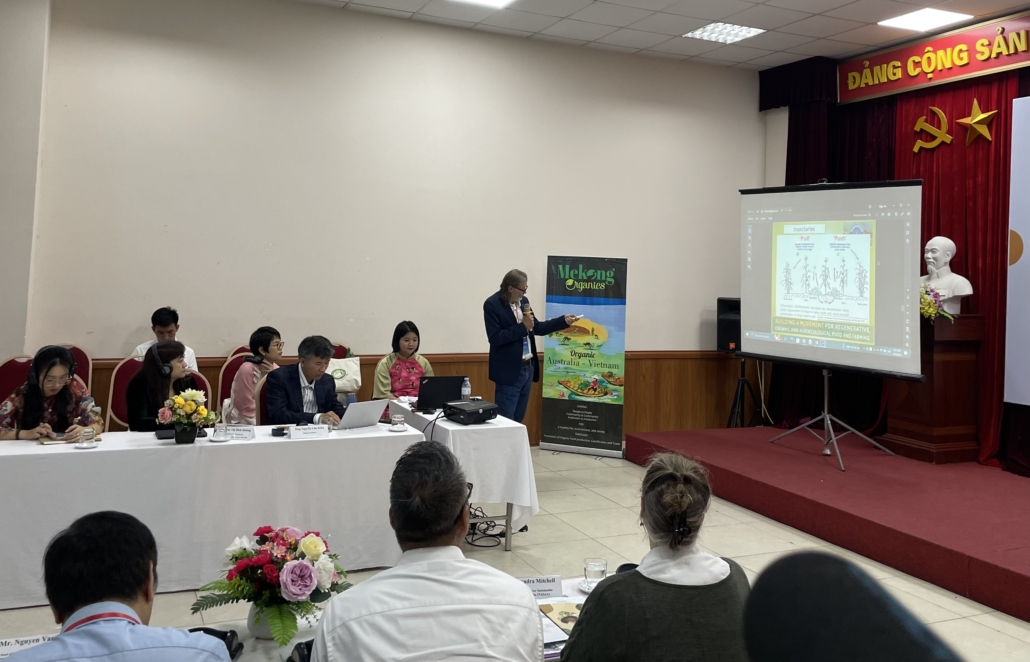
In both rounds of events in Ho Chi Minh and Hanoi, RI’s Prof. Dr André Leu highlighted the importance of regenerating agriculture using photosynthesis for root secretions to build soil fertility and presented regenerative innovations and successes happening across the globe, such as pasture cropping in Australia, holistic planned grazing systems in East Africa, micro-farming in California, and how regenerative organic agriculture is the future of food production in a world affected by climate change, as it can store water on land, converts atmospheric carbon into soil fertility and uses biodiversity to self-regulate pests and diseases while producing higher yields than conventional farming.
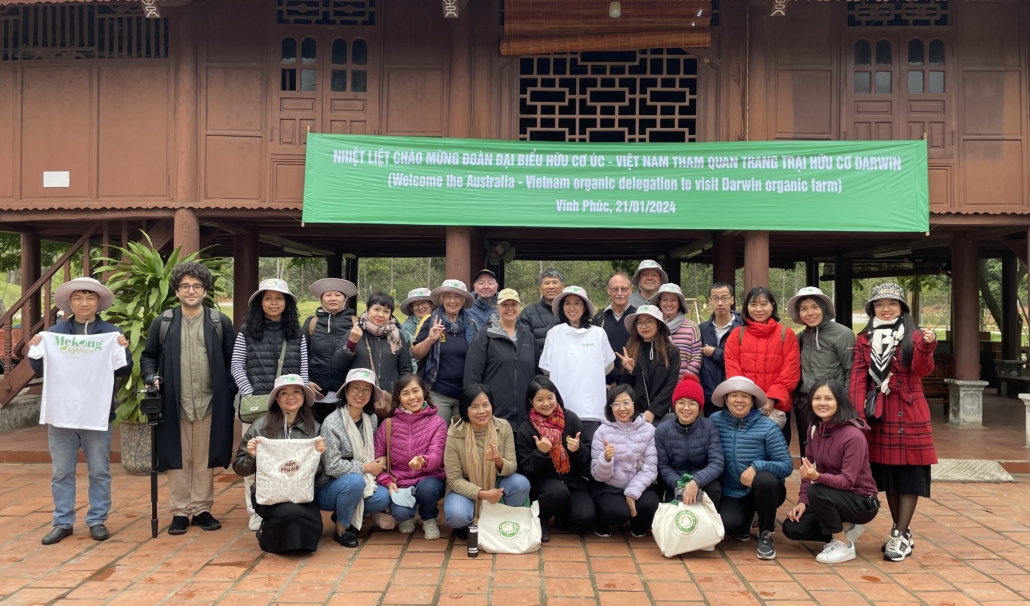
Dr Andre Leu’s knowledge transfer of global regenerative organic development and his workshop and forum contributions in Dong Thàp, Ho Chi Minh, and Hanoi have built solid partnerships and paved the way for Regeneration International to collaborate on future multistakeholder events with Mekong Organics and partners such as the Vietnamese Organic Agriculture Association to promote long-term solutions that combine climate, environmental, and market resiliency in food systems through regenerative organic farming.

